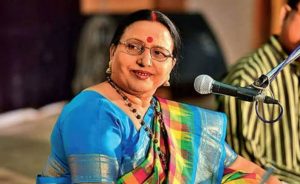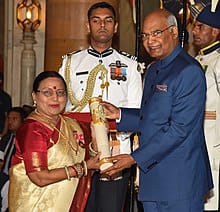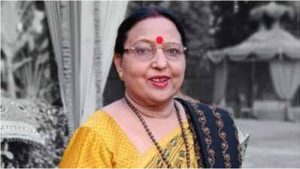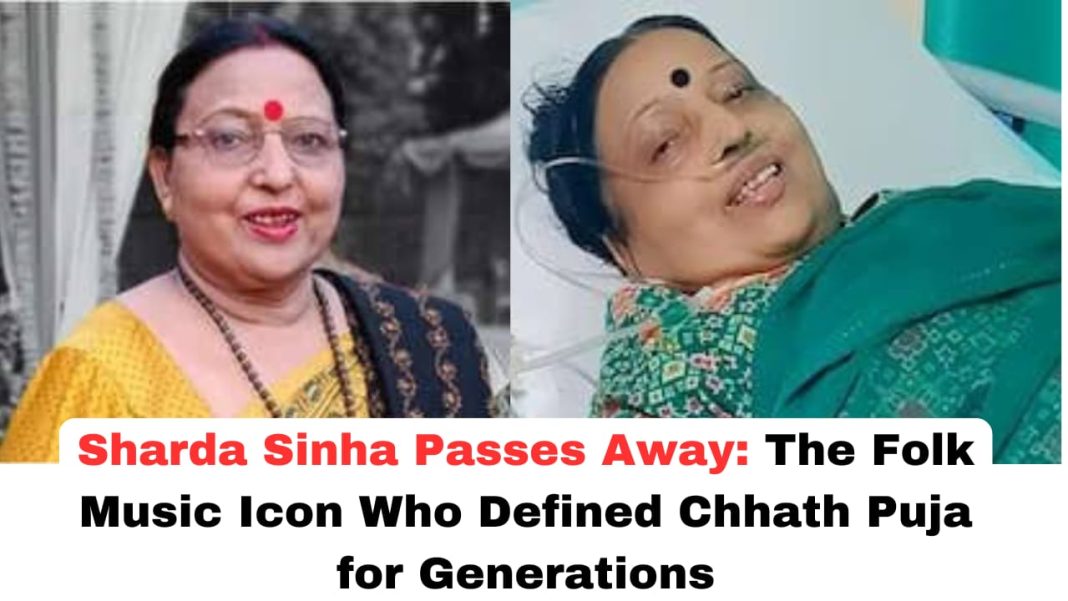Digital News Desk:
The recent passing of Sharda Sinha, the celebrated “Bihar Kokila” (Nightingale of Bihar), has cast a somber shadow across India, particularly in her home state of Bihar. Known for her dedication to Bhojpuri, Maithili, and Magahi folk music, Sinha’s songs became synonymous with the Chhath Puja, a major Hindu festival in Bihar and other regions of northern India. Her departure not only marks a cultural loss but also underscores the vital role folk traditions play in India’s collective identity.
Sharda Sinha’s Life and Legacy
Sharda Sinha’s journey in music began in Bihar, where she was born and raised in a traditional setting that celebrated regional art forms. Her deep commitment to Bhojpuri and other regional languages distinguished her as an artist. Unlike popular Bollywood singers, Sinha concentrated on regional folk music, bridging rural India with the national stage. She had a distinctive ability to capture the essence of Bhojpuri culture and convey it through her soulful voice, allowing her to reach listeners far beyond her linguistic and geographical boundaries.

Sinha’s career took off with songs that became household staples during cultural festivals, especially Chhath Puja. Tracks like “Pahele Pahil Chhathi Maiya” became iconic, forever linking her voice with the essence of the festival. Her music became deeply interwoven with these celebrations, to the extent that no Chhath Puja felt complete without her songs echoing in the background. Her voice became synonymous with the Chhath experience, invoking emotions of joy, reverence, and nostalgia across generations.
Iconic Contribution to Folk Music and Culture
Sinha’s music was more than entertainment; it served as a repository of cultural values, traditions, and memories. Folk music in India often reflects the lives, struggles, and celebrations of rural communities, and Sinha’s songs provided a window into the Bhojpuri culture for listeners unfamiliar with the language or region. Her ability to bring the nuances of folk life into mainstream Indian music was rare. Sinha’s contributions were further honored with prestigious awards such as the Padma Bhushan and Padma Shri, two of India’s highest civilian honors, which acknowledged her role in preserving and popularizing Bhojpuri folk music.

For years, Sinha’s renditions of Chhath Puja songs were broadcast on television, played on loudspeakers in towns, and shared in households across India, transcending linguistic and cultural barriers. In a country as diverse as India, Sinha managed to build a pan-Indian appeal with music rooted in her local heritage. The government of Bihar, recognizing her contributions, often invited her to official state functions, and she remained a prominent figure in cultural initiatives aimed at preserving Bhojpuri language and heritage.
A Loss for the Cultural Landscape of India
Sharda Sinha’s passing is being widely mourned, not only by her family and friends but by countless fans, cultural institutions, and state governments. Her demise has spurred an outpouring of tributes, with admirers sharing her songs, memories, and the impact she left on their lives. Many people remarked that Sinha’s music was a staple of their childhoods, particularly during festival seasons when her voice became a part of family gatherings and celebrations.
The timing of her passing, close to the Chhath Puja festival, adds a layer of poignancy to her loss. Chhath is celebrated as a mark of respect for the Sun God and his wife, Usha, with rituals that honor nature and family bonds. As families across India celebrated Chhath this year, the absence of Sinha’s live presence reminded many of the deep void she has left in their lives. Her music has been, and will continue to be, an integral part of Chhath Puja, but her physical absence resonates deeply, especially among those who grew up listening to her voice during this festival.
The Cultural Importance of Preserving Folk Traditions
Sinha’s legacy also brings to light the importance of preserving and supporting folk music traditions, which have been increasingly overshadowed by mainstream entertainment. As India’s entertainment landscape rapidly modernizes, regional languages and folk art forms often struggle to find a place in the mainstream media. Yet, artists like Sharda Sinha have demonstrated that folk music carries a rich heritage worth preserving, as it is closely tied to the everyday lives and traditions of rural communities.

Sinha’s work serves as a reminder of the cultural richness embedded within India’s folk music. Her influence goes beyond music, symbolizing the resilience and enduring charm of India’s linguistic diversity. By championing her regional language, she resisted the trend toward cultural homogenization and kept alive the stories, idioms, and emotions unique to Bihar and its surroundings. For future generations, Sinha’s songs will be a reminder of a time when folk traditions were deeply respected and treasured.
Continuing Sinha’s Legacy in Indian Culture
As India bids farewell to Sharda Sinha, cultural organizations, local musicians, and government bodies are likely to work toward keeping her legacy alive. Efforts to document, archive, and promote her music, as well as the larger tradition of Bhojpuri folk music, are essential to ensure that her contributions continue to inspire future generations. Festivals such as Chhath Puja provide a powerful platform to celebrate and remember her music, and it is likely that her songs will continue to be a part of such festivities.

Sinha’s passing is a significant cultural moment, reminding us of the fragile nature of folk traditions and the irreplaceable loss that occurs when a custodian of such traditions departs. Her legacy, however, is secure in the melodies that continue to resonate, carrying forward the voice of Bihar and Bhojpuri culture into the future.
In this time of mourning, her songs serve as both a comfort and a reminder of her legacy. The music she leaves behind will continue to inspire, console, and bring joy, just as it did throughout her life.
You May Also Read: Constitutional Clarity: Supreme Court Overturns Allahabad High Court on Madarsa Education in UP








